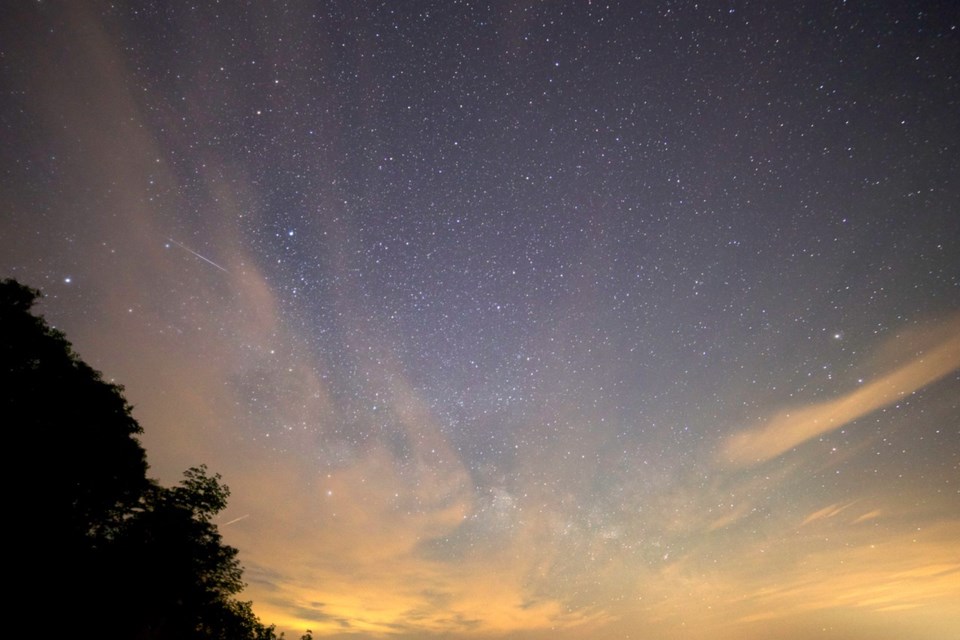
When Commander Chris Hadfield took command of the international space station in March 2013, he did something that no commander had done before, he communicated his love of space in glorious daily tweets to the world. Canada – his country – took notice.
Like many of my citizens, I stopped my routine of fussing over the tasks and worries of the day for a moment to gaze at his amazing photos and videos, or to listen to his music. It was as if we were all there with him, peering out into space and realizing the vastness, the beauty and the majesty of a universe we might never have considered much. ��For that moment, we were lifted out of ourselves and could see that there is so much more to the universe, creation and existence than our feeble imaginations and view of surrounding things - homes, yards, streets, cars, etc. - could grasp.
But a new trend has many of us tending to peer inwards instead of up and out. A recent article in Scientific American, titled “,” maintains that some of our ancient beliefs about the nature of existence have never gone away. Author John Horgan points to the history of earlier astronomers such as Galileo, Copernicus and Kepler who courageously refuted the belief of the era - i.e. that the earth was the centre of the universe. Horgan suggests that in our era, humanity is again increasingly reverting back to that notion, but with a new twist - with the fascination for the nature of human consciousness; some scientists and popular new age celebrities are now suggesting that this��human consciousness is the origin of the universe. ��In other words - the universe is us humans.
Horgan asserts that this narcissism is central to human nature – that all systems, including religious systems, are essentially self-centered. ��The article tackles and refutes some of these theories, which it terms neo-geocentrism.
I can see why someone might view all religions as humanly self-centered but it isn’t what I understand and have experienced of��the Gospel teachings of Jesus. His message, it seems to me, was very clear: ��God is the Creator - the center and circumference of the universe - and man is the beloved spiritual image of God. ��And, he proved this view to be true through his actual works. ����It was this revolutionary and courageous insight of the spiritual nature of creation that enabled him to heal those who came to him. To this day his ministry encourages us to rethink what we consider to be universal laws of physics and nature since he walked on water, stilled a storm, walked through a closed door, fed thousands and raised the dead. ������
Jesus also refuted the theories of his day that indicated God was a cold, impersonal and distant deity, and that man was separate from the Divine. Rather, he assured us��that God was pure, spiritual Love and this Love fills and governs His entire creation. He did not teach that the human mind can be - or become - ��the originator of creation.
Fresh as ever today, his teachings lift me from a small self-involved, brain-centered, and separated sense of existence to a God that is intelligent, divine Love, enfolding and including me, and all.
Mary Baker Eddy, who was very much a spiritual explorer examining the nature of God and the universe,��followed Jesus teachings closely,��and considered the nature of the universe this way:
“The depth, breadth, height, might, majesty, and glory of infinite Love fill all space.”
I was reminded of this passage recently when I took a tour of the in Saanich, 91ԭ�� Island. An astronomer friend of ours gave us a most inspiring lecture on our solar system, as well as the nature of her work in studying the birth of stars. It could have felt so distant, complicated, cold and impersonal, but it didn’t. Instead, I caught a glimpse of that depth, breadth and glory of divine Love – expressed in the extraordinary photos I was seeing. The idea that divine Love fills all space inspired me with awe. And, I humbly understood how much we have yet to learn of the wonder of that spiritual idea. We are the very outcome of divine Love - the reflection, not the originator.��������������������������������������������������������������������������������������������������������������������������������������������������������������������������������������������������������������������������������������������
I may not be tweeting those glimpses as Commander Hadfield did. I do not need to, for I know that we can all feel that wonder of divine Love, and experience its healing influence. Then we can think of the universe as not ego-centric, geo-centric or bio-centric, but God-centric.
 Anna Bowness-Park is a Christian Science practitioner, who writes frequently on the relationship between spirituality and health, and how prayer can play a role. You can follow her blog at��
Anna Bowness-Park is a Christian Science practitioner, who writes frequently on the relationship between spirituality and health, and how prayer can play a role. You can follow her blog at��
You can read more articles on our interfaith blog Spiritually Speaking


